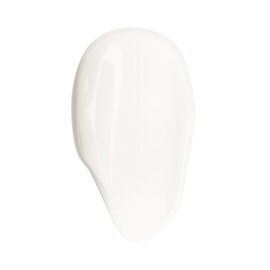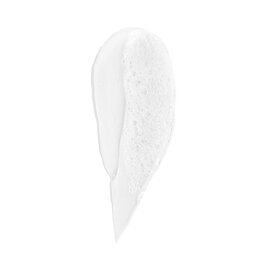Retinol Cream vs. Serum: Choosing the Right Formulation for Your Skin
On your journey to building an anti-aging skincare routine, you’ll no doubt come across retinol – one of the most effective anti-aging ingredients. Over countless studies, it has proven to be powerful for reducing wrinkles, preventing wrinkles, evening skin tone, and healing acne.
It’s no wonder that many skincare brands (us included) infuse their anti-aging products with retinol (or pro-retinol). It can be difficult to know which retinol products to choose – should you opt for a retinol serum or a retinol cream?
In this article, we’ll explain what retinol is and its benefits. We’ll go over the differences between retinol serums and retinol creams and help you decide which one to choose based on your skin types and concerns.
Let’s get started.
What is retinol?
Retinol is a powerful anti-aging and resurfacing ingredient derived from Vitamin A. It boosts the production of collagen and cell turnover, helping to reduce the appearance of fine lines and wrinkles. It also helps to heal and prevent acne and fade scarring.
It’s one of the most effective anti-aging ingredients available on the market. You can find retinol in various concentrations in over-the-counter skincare products and prescription retinoid creams.
Retinol is not an instant miracle worker – it does take a few months of consistent use to start seeing results.
What is a retinol cream?
A retinol cream is a moisturizer that’s infused with retinol. It can be used as normal to hydrate the skin, with the added perk of retinol’s anti-aging and resurfacing power. Retinol can also be infused in eye creams too to reduce crow’s feet and undereye wrinkles, such as this Biotherm Pro-Retinol Eye Cream.
You can often find retinol infused in anti-aging night creams since retinol works its magic the best overnight. It also makes your skin more susceptible to sun damage – another reason to use it at night (and to double up on sunscreen during the day).
What is a retinol serum?
A retinol serum is usually a thinner consistency than a cream but is often packed with the highest concentration of active ingredients.
Serums are a skincare product typically used in the middle of your skincare routine – after cleansing and before moisturizing. They usually cater to a specific skin concern – from hydration to anti-aging to purifying. You’ll typically find retinol in an anti-aging serum because of its powerful effect on reversing the signs of aging.
Retinol cream vs. serum
So now that you know what a retinol cream and a retinol serum are, how do you know which one to pick?
It depends on a few factors:
1. Skin type
If you have oily skin, you might want to opt for a serum instead. Most retinol-based face creams are richer in consistency and can be too heavy for oily skin types.
If you have normal to dry skin, a retinol cream could be a better fit for those same reasons – you’ll get a dose of moisture to go along with the (often drying) retinol.
Regardless of skin type, think about the textures that you prefer in your skincare routine – do you go for lightweight products or richer products? If you like lighter textures, use a retinol serum.
2. Skin sensitivity
While retinol is an effective anti-aging ingredient, it can be harsh and drying – especially if you have sensitive skin. The format it comes in – cream or serum – doesn’t matter as much as the retinol strength in this case.
If you have sensitive skin, start with a retinol serum or retinol cream with a lower percentage of retinol. You can also choose a face cream or face serum that has a milder form of retinol, such as the Biotherm Blue Pro-Retinol Multi-Correct Cream, which contains pro-retinol, a milder (but still effective) form of retinol. For those seeking a more potent option, the Biotherm Blue Retinol Night Serum features pure retinol combined with Biotech Plankton, offering powerful results while being suitable for sensitive skin.
3. Your current skincare routine
Think about your overall skincare routine when deciding between a retinol cream or toner. If you already have a face cream that you love and don’t want to stop using, go for a retinol serum instead. It will be a great addition to your skincare routine.
This works both ways – if you already have a face serum that you love using, add retinol to your routine in the form of a face cream.
How to use retinol in your skincare routine
Retinol is most effective for reducing wrinkles when used properly. Here are a few tips to keep in mind when incorporating a retinol in your skincare routine:
- Start with a clean, dry face – whether you’re using a serum or cream, retinol performs best when your skin is free of makeup and impurities and is completely dry to the touch. Remove makeup, cleanse your skin with a gentle cleanser, and gently pat dry before moving on to your retinol skincare.
- Retinol makes your skin more susceptible to sun damage. Use a face sunscreen daily with at least SPF 30+ and reapply every two hours. UV ray sun damage is not only dangerous, but also an aging accelerator – it causes wrinkles, fine lines, sunspots, and sagging skin. There’s no point in using retinol to reverse aging if you’re not wearing sunscreen to prevent further aging.
- Retinol can be harsh or drying and everyone’s skin reacts differently. Some can use retinol daily, while others have to stick to a few times per week. Start slow and build up your retinol usage over time. If your skin is overly dry, cracked, or peeling, scale it back and use it less.
There you have it! Follow this guide and you’ll be able to choose a retinol product that’s right for you – whether it’s a serum or a cream. You’ll get youthful-looking, glowing skin in no time.









